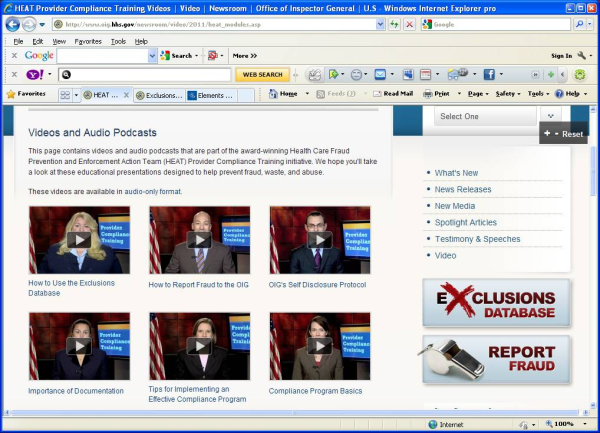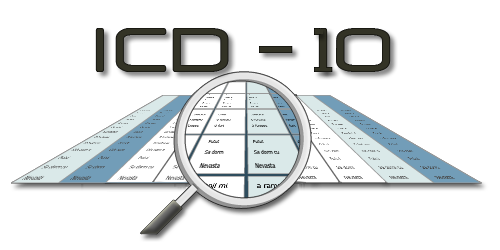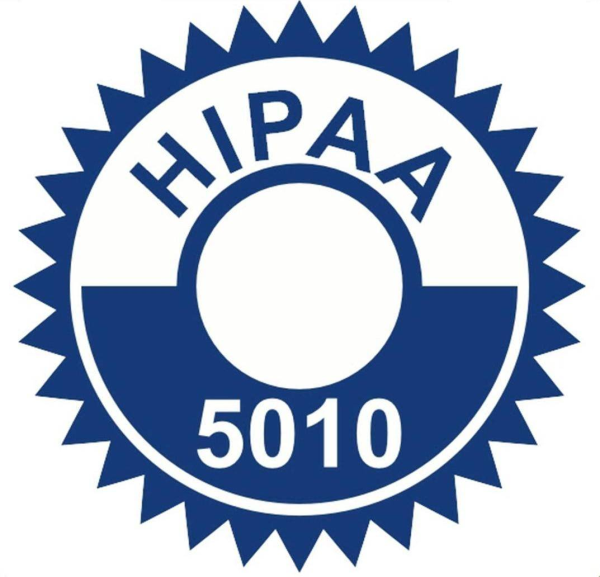Compliance plans are useful and serve a purpose. The primary reason you need a compliance plan is to prevent mistakes from happening. It’s nothing more than guidelines for your staff to follow to ensure that everyone abides by existing laws and regulations. Aside from the fact that current guidelines require all providers to have a compliance plan, the self monitoring instigated by having a compliance plan helps prevent errors—and that can help prevent government audits. And we want to prevent government audits because they are usually time consuming and expensive.
Medical Billing Blog
On Friday, February 17, 2012, the House and Senate both passed this measure to freeze current Medicare Physician Pay Rates through the beginning of 2013, avoiding a 27.4% pay cut that was slated to hit providers on March 1, 2012. Nonetheless, pay rates may still be cut as much as 32% at the beginning of 2013. Medical Billing Resources will continue to monitor the issue and will post about any further important developments.
Health and Human Services Secretary Kathleen G. Sebelius today announced plans to postpone implementation of International Classification of Diseases, 10th Edition Diagnosis and Procedure Codes (ICD-10) by certain health care entities.
Medical Coding for Deep Vein Thrombosis Bursts Under ICD-10
Currently, under ICD-9, a 453.42 code is for acute venous embolism and thrombosis of deep vessels of distal lower extremity. Included under this code is a diagnosis involving a thrombosis or embolism to the calf, lower leg NOS, or the peroneal or tibial veins. All possible combinations are included under this one code.
RACs, MACs, and ZPICs, Oh My! Who's Watching Healthcare Providers' Medical Billing?
With an estimated $60 Billion wasted in Medicare fraud annually, our government has enacted various laws in an effort to reduce healthcare fraud. They are going after healthcare fraud in a major way as part of the effort to balance the national budget, and there are a few new programs that are making a significant difference in healthcare reimbursements. They are RACs, MACs, ZPICs and Strike Forces.
Why Providers Need Certified Professional Coders
In any medical practice or clinic, the objective is to provide the best care possible and be reimbursed at the highest possible rate. The former is in the hands of the provider—usually the clinic or practice owner—who has a vested interest in making sure that “best care possible” proposition is carried out. He has direct control and authority over the level of care patients receive, and can easily make adjustments when circumstances warrant. He is comfortable with his level of knowledge and education, knows his limitations, and brings in consultants when necessary to compensate for any lapse in quality he may feel would detract from the care scenario his patients receive. We all know this is a full time job—and then some. So what about the latter—being reimbursed at the highest possible rate? Usually the physician has some knowledge of coding requirements that comes through osmosis from filling out encounter slips for the patients he sees, but there is hardly enough time in the day for a physician to double check every code on every chart processed by his billers and coders. He is justified in expecting that the biller or coder will exhibit the highest commitment to excellence in knowledge, professional standards, compliance and ethics, even though the biller or coder does not have the ownership interest in the practice that the provider has.
There Are Ramifications To Regular Downcoding In Medical Billing
Do not fall into the trap of downcoding just to be ‘on the safe side.’ As a physician, it is your responsibility to code based on your documentation. If you continue to downcode, you’re not only at risk of losing thousands of dollars in revenue per year, but you’re also potentially triggering an audit of your practice.
5010 Update: Medical Billing Company Recommends Holding Some Cash
By now every provider should be aware of 5010. 5010 is the new electronic claims transmission format that becomes effective January 1, 2012. Commercial and grvernment payers are all required to use this new format.
5 Rules for Medical Coding of Hypertension
Medical Billing and coding for hypertension claims is easy if you follow these five basic rules of ICD-9. ICD-9 codes are updated every year. And with these updates, codes are becoming more comprehensive as payers steer away from unspecified code sets. Hypertension, a disease that according to the Centers for Disease Control and Prevention (CDC) affects thirty-three percent of adults over the age of twenty, has seen its coding become increasingly reliant upon the information found in patients’ medical records. This means if your HTN coding is not first-rate, your practice could be losing revenue on every claim! In order to keep your coding compliant with ICD-9, as well as to receive full compensation, you should apply these five rules based on the ICD-9 official guidelines.
CMS To Audit Medical Billing Claims Before Issuing Payment
As part of an ongoing effort to reduce fraudulent payments from Medicare and Medicaid, CMS announced the launch of the Recovery Audit Prepayment Review Demonstration Program. In the prepayment review program, recovery auditors will review medical billing claims before they are paid to ensure that providers comply with all Medicare payment rules. Recovery Auditors will conduct prepayment reviews on certain types of claims that historically result in high rates of improper payments.



















